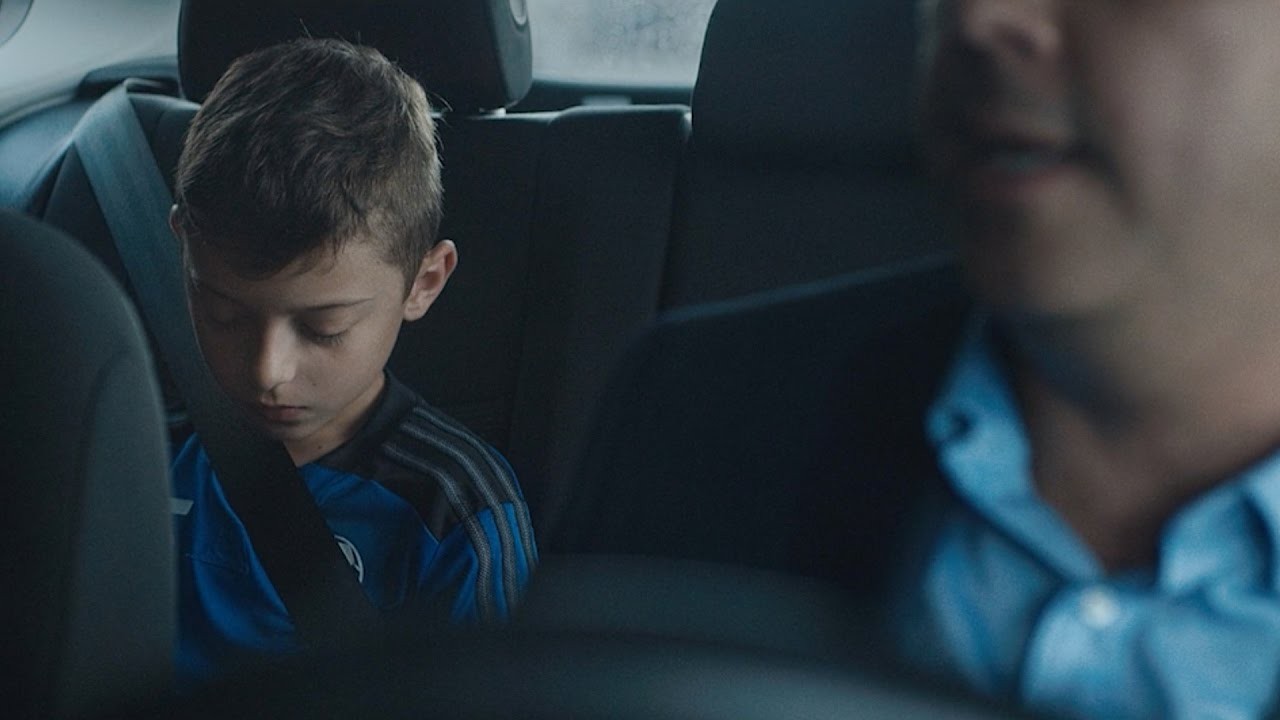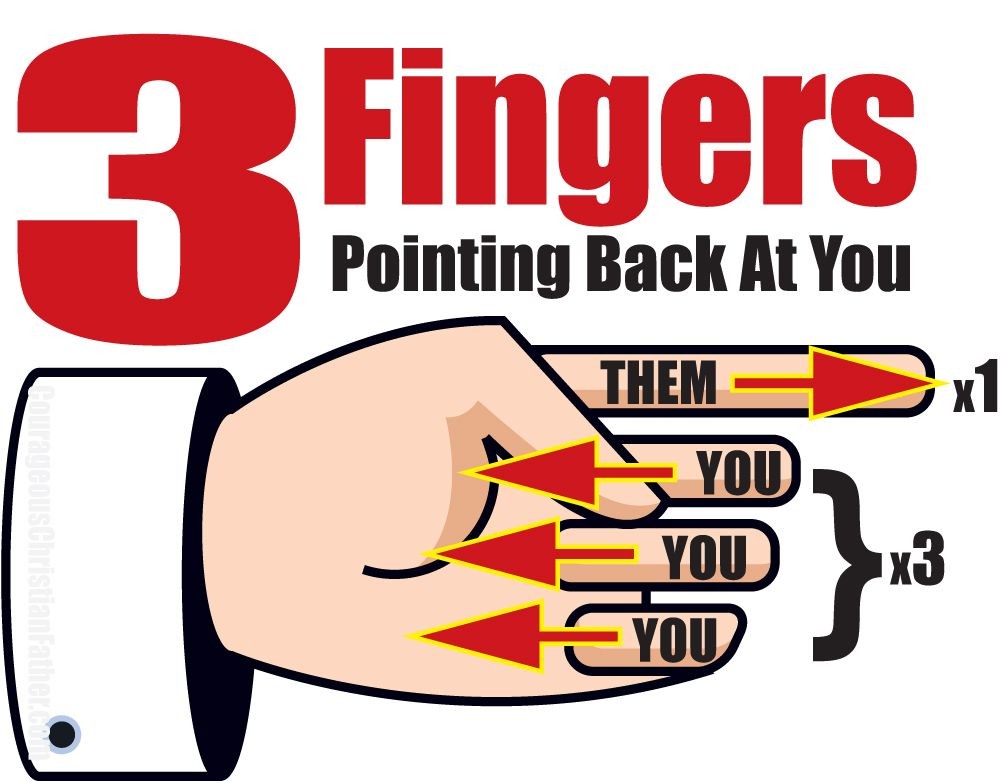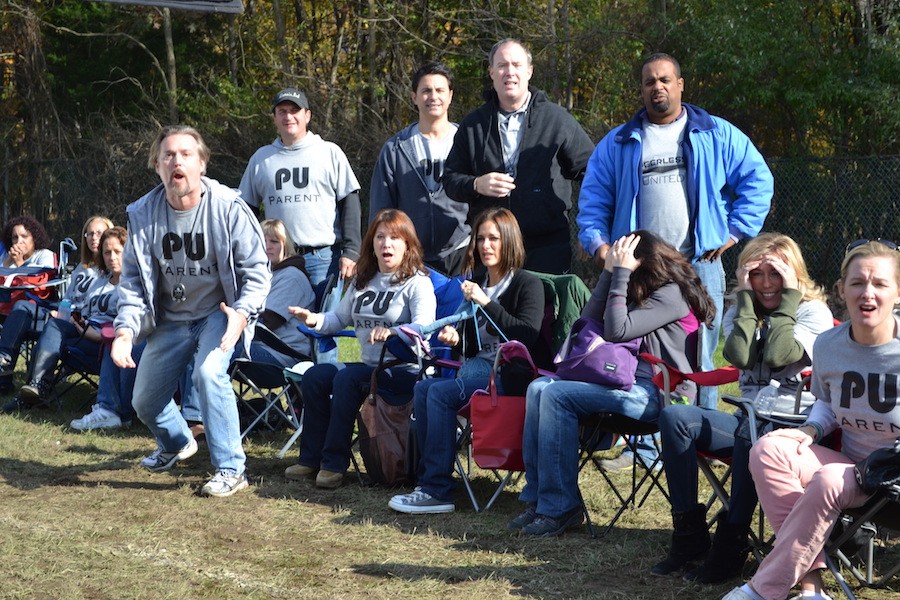With over 15 years of coaching in youth soccer, I can say that I have just about seen it all. From coaching some of the top youth tournaments in the country to managing the Pink Tigers and the Green Mantis in AYSO this past season, I always share that there is usually one key factor that can make or break a season…the parents. I put this together for any parent with kids in youth sports, but specifically for soccer parents who either have kids playing for the first time or need a refresher on the do’s and don’ts of their role.
Before diving in, I want to point out that I firmly believe that 99.99% of parents show up to the field and have positive intentions, but the second the game begins, things quickly change. Why is that? When watching their kid play, it’s as if a piece of them is out there. All we want as parents is to see our kids happy and succeed. Why wouldn’t our actions and words follow that sentiment? It starts with knowing our roles as parents. Everyone attending youth sports must remember their roles during a game.
• We have coaches to coach the game.
• We have referees to referee the game.
• We have players to play the game.
• And we have spectators to spectate the game.
A parent’s role consists of watching the game and supporting your child and the other players on the court. I know it can be a rollercoaster of thoughts and feelings watching your kids competing against other kids, but parents must be able to control their emotions. So please sit back, enjoy the game, smile, and support the players with a clap or cheer after they make a good play (Dagenais).
I could probably come up with 20 different categories. But for simplicity’s sake, I’ve created five categories that youth sports parents typically fall within. For any potential growth to take place, I ask that you humble yourself and think about your actions during your child’s sports events (practice & games) because the reality is that you may read this list and live within all five categories. Still, the ultimate goal is to recognize areas you might struggle with and strive to become an All-Star parent.
- The All-Star Parent
- The Accidental Diminisher
- The Live-Through-Your-Kids Parent
- The Coach Parent
- The Critical Parent
The All-Star Youth Sport Parent:
The parents that fall into this category are the model youth sports parents. You may find many of these qualities you already have. Still, please understand that having even ONE characteristic of the other categories can damage your child’s youth sports experience.
The All-Star parent supports their child on and off the field. This involves positive reinforcement and respecting the effort their child puts forth. This parent has their child at as many practices and games as they can attend with the proper equipment. The All-Star parent helps other kids on the team when in need, including rides to and from practice and encouraging other kids on the sidelines. The All-Star parent is involved with team needs and makes the coaches’ life easier by helping communicate with other parents, organizing fundraisers, and providing team snacks. They are involved as possible! The All-Star parent shows up to as many games as they can attend and makes their kid’s sport a priority. These parents will stand behind the decisions of the coach and the referees, and they do not let their children blame others. The All-Star parent is genuinely interested in seeing everyone on the team succeed, not just their own (Dagenais).
Example of an All-Star Parent:
One parent told me they recognized they yelled negative comments during the games. To avoid doing that, they stood near one of the end-lines and recorded the games. This All-Star parent took something they struggled with and turned it into a positive to help the team. The parent avoided using negative comments because every word was now recorded, and then they disseminated the film to all team members for video analysis.
The Accidental Diminisher Youth Sports Parent:
I am using “Accidental Diminisher” from Liz Wiseman’s book, Multipliers: How the Best Leaders Make Everyone Smarter. Although her terminology of the Accidental Diminisher focuses on Managers within the business world, the concept applies to youth sports parents. The Accidental Diminisher is the parent who means well but doesn’t recognize the damage they’re doing. The following examples are things I’ve consistently seen throughout my coaching career that parents do and genuinely think they’re helping.
The Car Ride Home:
Believe it or not, the car ride home can be one of the most impactful moments you can have as a parent. So many times, the accidental diminisher finally gets their kid in the car and wants to analyze the practice/game. “In the first half, you passed the ball to Ryan; why didn’t you shoot?” Yet, when the game is over, parents don’t realize that their child has mentally moved on more often than not.
“Emotions are high, disappointment, frustration, and exhaustion are heightened for both player and parent, yet many parents choose this moment to confront their child about a play, criticize them for not putting enough effort, and chastise their child, their teammates, their coach, and their opponents. There could not be a less teachable moment in your child’s sporting life than the ride home, yet it is often the moment that well-intentioned parents decide to do all of their teaching (O’Sullivan, 2014).”
Trust me, as a parent; I’ve struggled with this idea. There was a time I was furious with my son’s effort during a game and immediately began discussing effort with him in the car. Instead, I encourage all my parents to say these simple words when they get into the car.
” I am so proud of you, and I love to watch you play.”
Your job as a parent is done. It’s okay to discuss his effort at another point (best before their next practice) but not on the car ride home! However, most parents can’t stop there. Instead of initiating the conversation about specifics within the game, try asking the following question, “Can you tell me your favorite thing about today’s game?” I love this question because it avoids the yes or no responses we typically receive as parents. The most important aspect of the car ride home is to allow your child to initiate all conversations about the game. If they initiate, it’s okay to engage and share some of your thoughts (as long as it’s positive, I’ll get more into this later).
Blaming others to protect the child’s feelings:
The championship game just ended, and you see your child in tears. I can’t begin to recall how often I’ve heard parents blame others to protect their child’s feelings.
“It’s okay, Sam, it’s not your fault! You only lost that game because the ref was terrible!”
“It’s okay, Jessica, it’s not your fault! You only lost that game because your coach made some questionable substitutions at the end of that game!”
“It’s okay, Ryan, it’s not your fault! You only lost that game because your GK gave up two easy goals.”
While you may be protecting your child’s feelings now, comments like these are far more damaging than you can ever imagine.
As parents, we miss valuable teaching moments on life skills like ownership, character, and resiliency.
Instead, using the examples above, we teach our kid’s that it’s okay to blame the referee and instill doubt and a lack of respect for your coach and teammate. I teach my players a straightforward question I want them to think about after every game we’ve played. “What could I have done better to be a good teammate and help my team succeed?” Further, I show them that when they point their finger (blame others) at somebody else, they will always have their own three fingers pointing back at them! TAKE OWNERSHIP!
Example of an All-Star Youth Sports Parent:
I once heard one of my parents quickly correct their child after the game. The son came off the field and said, “it’s okay, guys; we only lost because that referee sucked and gave them two penalty kicks.” I will never forget the All-star parent’s response, “Is that so? Was it the referee’s fault your team missed four breakaways? Was it the referee’s fault your team defended poorly and fouled them twice in the box? Was it the referee’s fault your team struggled to keep possession today? Instead of blaming the referee, maybe we can learn from this and think about what we could have done better.”
The Live-Through-Your-Kids Parent:
More often than not, parents that fall into this category have regrets through their youth sports careers. These parents never reached as high of a level as they felt they could have achieved and want to ensure their children didn’t make the same mistakes. Again, the positive intention with poor outcomes. The live-through-your-kid parent pushes their child to train every day and gets upset if the kid is not interested or would instead do something else. These parents get upset with their children if they don’t put in the same kind of effort that they expect to achieve a high level of success. These parents typically push their kids to be the way they are and do things the way they did when they were playing the sport.
Do: Encourage your kid to practice their sport daily by asking if they want to pass the ball, play catch, or shoot hoops.
Don’t: Get upset at the child if their response is “no,” and they’d instead build legos.
If, after encouraging the child to go and practice, the child says yes and wants to practice outside.
Do:
- Attempt to make the activity as fun as possible.
- If you’re dribbling a soccer ball, create a game involving superheroes and bad guys.
- Allow the child to “practice” without realizing they are learning a skill.
Don’t: As much as you want to instill your knowledge and expertise in your child, don’t over-coach. Don’t do drills professional players do. I’ve failed many times at this! I set up a cone drill that will benefit my child, but they quickly get disinterested and want to do something else.
The Coach Parent:
There are many examples I can provide of the Coach Parent. But the most detrimental one is when the Coach Parent communicates to players during the game. The Coach Parent has no idea what the game plan is from the actual coach, but because they “understand the game” well enough, they think they are being helpful by suggesting tips during the flow of the game. They can also be destructive to different team members because they may try to undermine what you are teaching. The Coach Parent is especially dangerous if they have a high level of achievement in a sport that other players might respect more than yours (Dagenais).
My example:
I try to do a 12-month periodization plan for each team I coach, breaking my teaching topics into age-appropriate skills/concepts. For example, we practice only building out of the back during one specific month. I had a handful of “Coach Parents” on this particular team, who all grew up playing in their respective countries. After a month of working on playing out of the back, during a scrimmage game, I created a rule that for the entire 1st half, we were not allowed to kick the ball long (in the air) from our goal kicks. The intention was to force the players into challenging scenarios, create solutions, and find appropriate passing angles by moving off the ball. The players did as I instructed, but as the 1st half progressed, my Coach Parents were getting nervous about the decisions they were making and started shouting comments like, “Boot it long” or “play safe, hit the long ball to your forward.”
The Coach Parents have now put their kids in a difficult situation they should never face. Obey their parents, or listen to their coach.
While the Coach Parent meant well and was trying to help the team, the message they ultimately sent was they did not trust their coach and the development process that was taking place.
The Critical Parent:
I almost called this category the negative parent. This category is one of the most damaging and toxic parents on the sideline. Nothing is done right – the coach cant teach the game, the other parents don’t know how to handle their children, the other children don’t play like your kid, the other kids lack effort, etc. This gossiping parent can run rampant on your team and sour the athletic experience for all.
The Critical Parent will be most critical of their child and will hamper their child’s performance. The children feel tremendous pressure to live up to the critical parent’s expectations. And because the critical parent is most critical of their child, they naturally think it’s okay to be critical of others. So even if a child does something well within the game, the critical parent will find a way to bring it down. An example would be commenting, “That was a great pass; it’s about time you looked that way.” While the critical parent might think they’re giving a compliment, there is still the underlying message the kid has been failing.
My example:
I once had a critical parent that could not contain himself. Whenever his son was in the game, he would yell and demand more effort. After multiple conversations and throughout an entire season, the critical parent began to affect his child. During a college showcase, the critical parent yelled so much at his son, that his 16-year-old son burst into tears during the game. For the remainder of the tournament, I played the player on the opposite side of his father so he could primarily hear me and not his dad. Seeing a kid suffering that much anxiety while attempting to play a sport was heartbreaking. After a blunt conversation with the father, I told him that he was no longer allowed to watch the game from the sidelines until he could control himself. The father was embarrassed after learning that I had to play his kid on the opposite side of the field from him.
As I began, I believe 99.99% of parents have positive intentions when arriving to the field, yet we unknowingly fall into categories that have damaging effects. Trust me; it’s easy to fall into a harmful category. As a parent of three, I still make mistakes and fall into these categories. As we hope our children develop their skills throughout the season, I ask my parents to attempt to do the same. The more All-Stars we have, the better the experience for all!
References:
Dagenais, M. (n.d.). 10 types of SPS. Alvin Girls Softball Association. Retrieved July 20, 2022, from https://www.alvingirlssoftball.org/page/show/1514538-10-types-of-sports-parents
O’Sullivan, J. (2014, May 1). The Ride Home. Changing the Game Project. Retrieved July 20, 2022, from https://changingthegameproject.com/the-ride-home-after-the-game/












